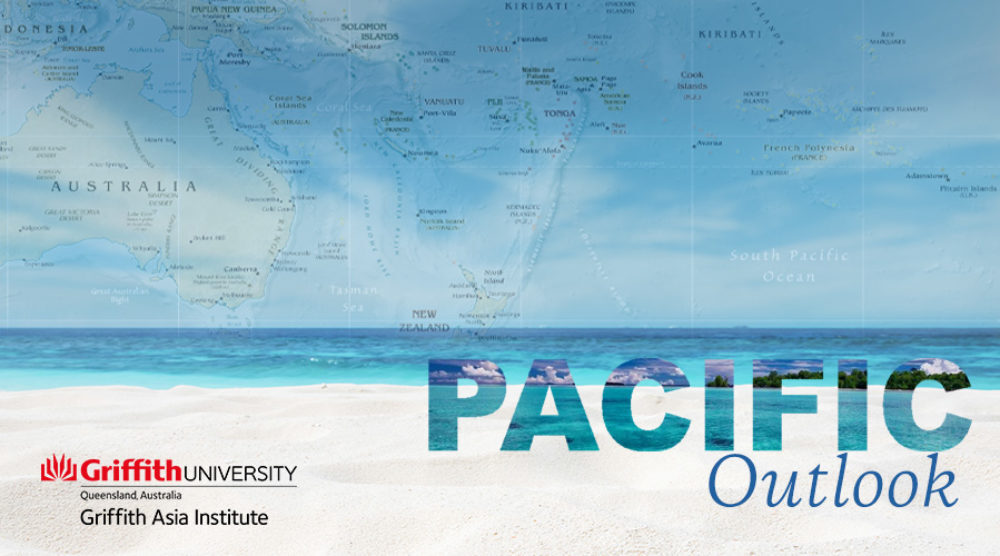TESS NEWTON CAIN |
Pacific Islands Forum leaders meet online
The leaders of the Pacific Islands Forum (PIF) met online at the end of last week. After a very challenging extended tenure, the Prime Minister of Tuvalua, Hon Kausea Natano handed over the chair to Prime Minister Josaia Voreqe Bainimarama of Fiji.
The impacts of the COVID-19 pandemic and how the region can recover were very much front of mind for the leaders.
The online meeting saw an historic milestone with the first address by a sitting US President. Joe Biden had pre-recorded a message that focused on his administration’s commitment to addressing the impacts of climate change.
Ongoing rifts within the PIF membership were evident with four of the five Micronesian leaders absent from the meeting. The President of Nauru, Lionel Aingimea, took part in the opening formalities but logged off when the Secretary General, Henry Puna, addressed the gathering.
Pacific Islands Forum (PIF) leaders endorse groundbreaking maritime declaration
Further to the online meeting of PIF leaders, a groundbreaking declaration on the fixing of maritime borders was endorsed.
The Declaration on Preserving Maritime Zones in the Face of Climate Change Related Sea Level Rise will be presented to the United Nations at the forthcoming meeting of the General Assembly. Regional negotiators will also take it to the COP26 meeting in Glasgow during November.
It aims to develop international law by fixing baseline maritime boundaries by reference to coordinates. At present they are demarcated with reference to ‘ambient’ features such as atolls that may be affected by sea-level rises caused by a warming climate.
The leaders recognised and welcomed the work of officials in negotiating several contested maritime borders within the PIF grouping. However, there are other disputes that have yet to be resolved.
Vice-Chancellor of USP offered a new contract by the University Council
The students’ association of the University of the South Pacific has welcomed the reinstatement of Professor Pal Ahluwalia as Vice-Chancellor.
The VC and his partner were summarily removed from Fiji in February. The Fijian government claims that the deportation was because of breaches of immigration law but has not provided any information as to what those were.
This series of events was sparked by Professor Ahluwalia’s allegations of financial misconduct on the part of his predecessor and other members of the University’s leadership.
The USP Council has confirmed that Professor Ahluwalia has been offered a new 3-year contract and that he will work from the Alafua Campus in Samoa. Professor Ahluwalia has said that he sees his being in Samoa as a way of making USP, a regional institution, somewhat less Fiji-centric.
It is not yet known when the Vice-Chancellor will commence his new contract.
Palau sees return of travellers and claims ‘herd immunity’
Palau has seen an increase in the number of arrivals from overseas since relaxing entry requirements. The government has felt able to take this step now that 80% of the adult population has been vaccinated against COVID-19.
Authorities have used a range of vaccines to immunise the adult population. Vaccinations of children and adolescents are well underway.
There is no longer a requirement to enter quarantine on arrival in Palau. Arrivals need to show that they have been vaccinated and receive a negative test for COVID-19 no more than three days before they commence travel.
Many of the recent arrivals into Palau have been members of the US military. However, authorities say that they are also seeing an increase in the number of commercial travellers entering the country.
Palau is one of a handful of countries that have had no COVID-19 cases since the pandemic began last year.
Intergovernmental Panel on Climate Change report highlights risks to Pacific peoples
The release of the IPCC report reinforces what many in the Pacific islands region have been saying for many years.
Pacific leaders such as the late Tony de Brum were instrumental in fixing ‘1.5 degrees’ as the upper limit of global warming that was enshrined in the Paris agreement. Now the science is telling us that the opportunity to achieve this is increasingly out of reach.
Whilst the overall thrust of the report is that cutting emissions and phasing out fossil fuels is key to protecting Pacific countries from sea level rise and/or the impacts of increasingly severe cyclones, the government of Australia has yet to accept this position.
In his comments on the report and what it means for Australia, Prime Minister Scott Morrison made no announcements to indicate a change in his country’s policy when it comes to emissions targets or continuing to mine and export coal.
This position is likely to be met with disappointment and possibly anger by leaders of Pacific island countries as well as global allies such as the USA and the UK.
Tess Newton Cain is an Adjunct Associate Professor at the Griffith Asia Institute and project lead of the Pacific Hub.








